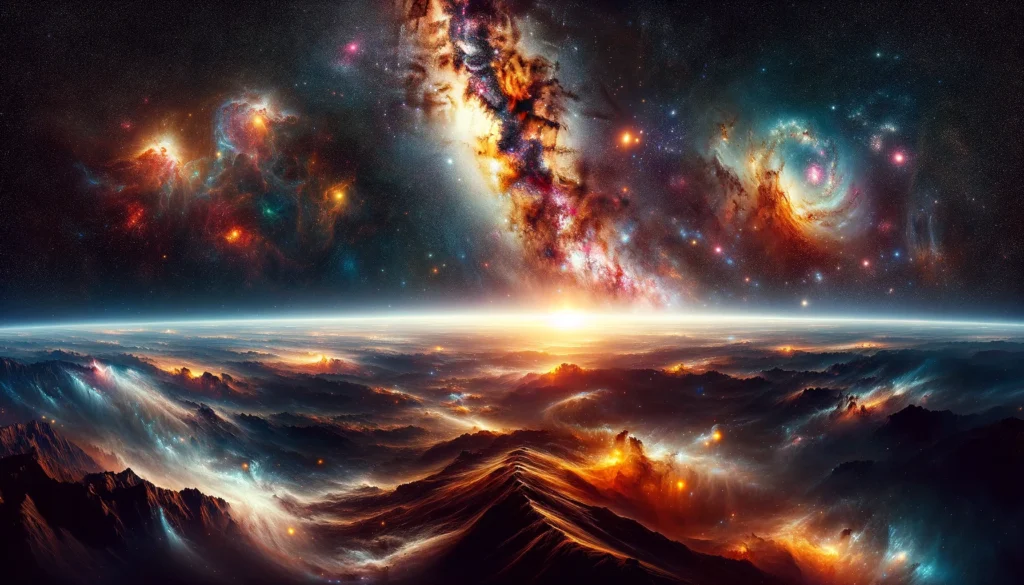
Table of Contents
A2 Level (Elementary)
- What is the universe?
- Can you name any planets?
- Do you know what a galaxy is?
- Have you ever seen a shooting star?
- What is the sun?
- Do you like to watch the stars at night?
- What do you think an astronaut does?
- Have you ever visited a planetarium?
- What is your favorite planet? Why?
- Can you name any constellations?
- Do you think aliens exist?
- What colors are stars?
- Would you like to travel to space?
- What do you think space feels like?
- Can you draw the solar system?
- What is a comet?
- Do you know any space movies?
- What is gravity?
- How do you think the universe was created?
- What would you take with you to space?
B1 Level (Intermediate)
- Discuss the difference between a star and a planet.
- How do scientists study the universe?
- What is a black hole?
- How important is the sun for life on Earth?
- Can you explain what the Milky Way is?
- Discuss the idea of living on another planet.
- What are the challenges of space travel?
- How do constellations get their names?
- What is the Big Bang Theory?
- Discuss the possibility of extraterrestrial life.
- How does the moon affect the Earth?
- What is a nebula?
- Why do we have leap years?
- Discuss the importance of space exploration.
- What is the role of a telescope?
- How do astronauts live in space?
- What is the significance of discovering water on Mars?
- How do you think the universe will end?
- Discuss the concept of time in space.
- What advancements do you hope for in space exploration?
B2 Level (Upper-Intermediate)
- Analyze the implications of finding life on other planets.
- Discuss the significance of the James Webb Space Telescope.
- How does the theory of relativity affect our understanding of the universe?
- Evaluate the potential for colonizing Mars.
- Discuss the impact of space debris on Earth’s orbit.
- Analyze the concept of a multiverse.
- How do black holes affect their surroundings?
- Discuss the ethical considerations of terraforming planets.
- Evaluate the role of private companies in space exploration.
- How do cultural perspectives on the universe differ?
- Discuss the importance of the Hubble Space Telescope’s discoveries.
- Analyze the challenges of interstellar travel.
- How do scientists detect exoplanets?
- Discuss the philosophical implications of the universe’s infinite nature.
- Evaluate the potential of harnessing space resources.
- How does space exploration contribute to technological advancements?
- Discuss the concept of dark matter and dark energy.
- How has our understanding of the universe changed over time?
- Analyze the significance of the cosmic microwave background radiation.
- Discuss the future of human habitation in space.
C1 Level (Advanced)
- Critique the anthropocentric view of the universe.
- Discuss the implications of quantum mechanics for understanding the universe.
- Evaluate the potential of artificial intelligence in space exploration.
- Analyze the philosophical questions raised by the possibility of parallel universes.
- Discuss the impact of cosmic events on Earth’s history.
- Evaluate the significance of the Voyager missions’ Golden Records.
- Analyze the role of dark energy in the expanding universe.
- Discuss the potential for life in extreme environments in space.
- Evaluate the challenges of maintaining mental health in long-duration space missions.
- Discuss the role of international cooperation in space exploration.
C2 Level (Proficiency)
- Discuss the implications of the Fermi paradox on the search for extraterrestrial intelligence.
- Analyze the concept of space-time and its implications for the universe.
- Critique the current theories on the origin of the universe.
- Discuss the philosophical implications of human existence in an expansive universe.
- Evaluate the ethical considerations of space colonization.
- Analyze the potential impact of discovering extraterrestrial civilizations.
- Discuss the limitations of human perception in understanding the universe.
- Critique the sustainability of current space exploration practices.
- Analyze the role of science fiction in shaping public perceptions of the universe.
- Discuss the future of theoretical physics in unraveling the mysteries of the cosmos.

